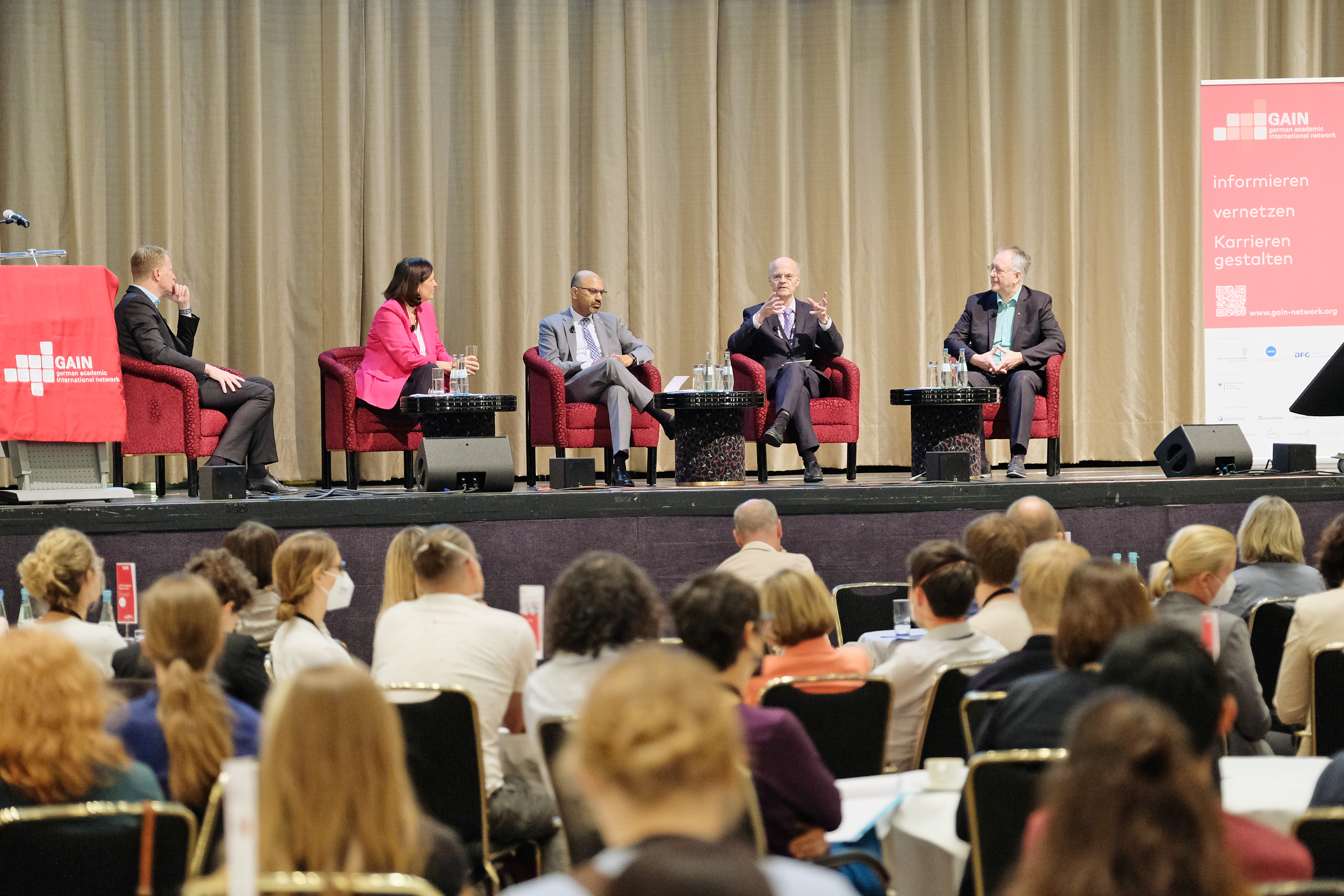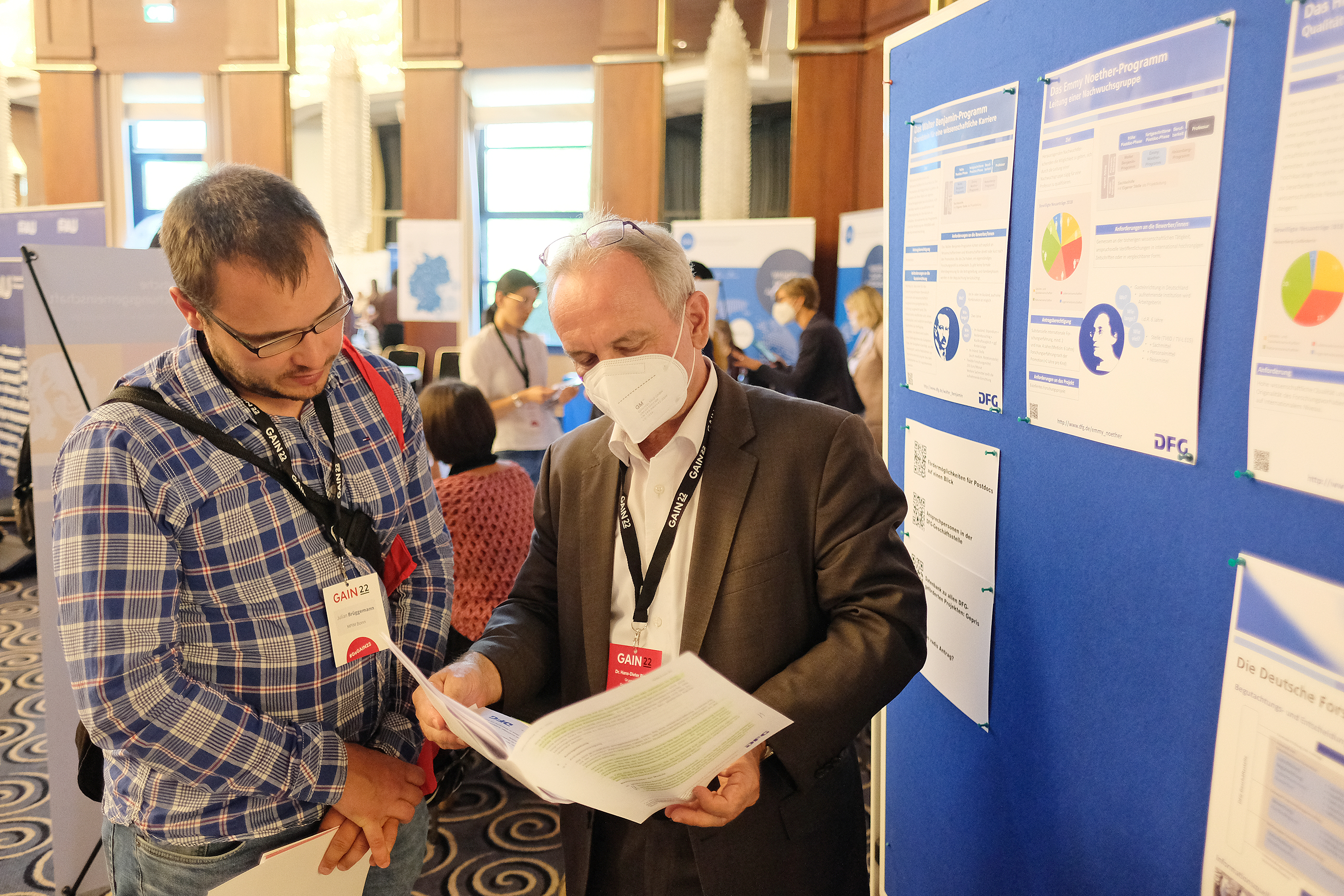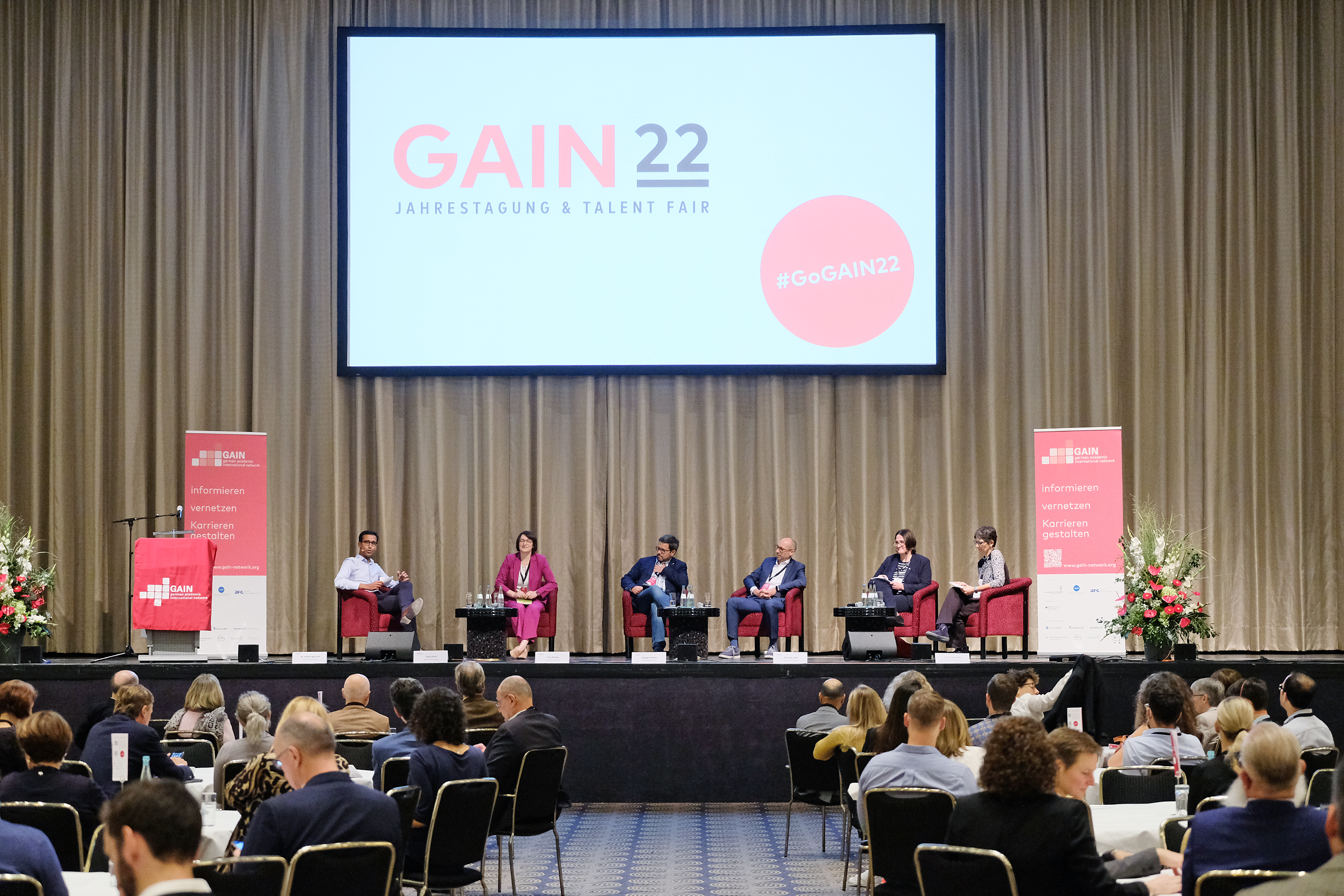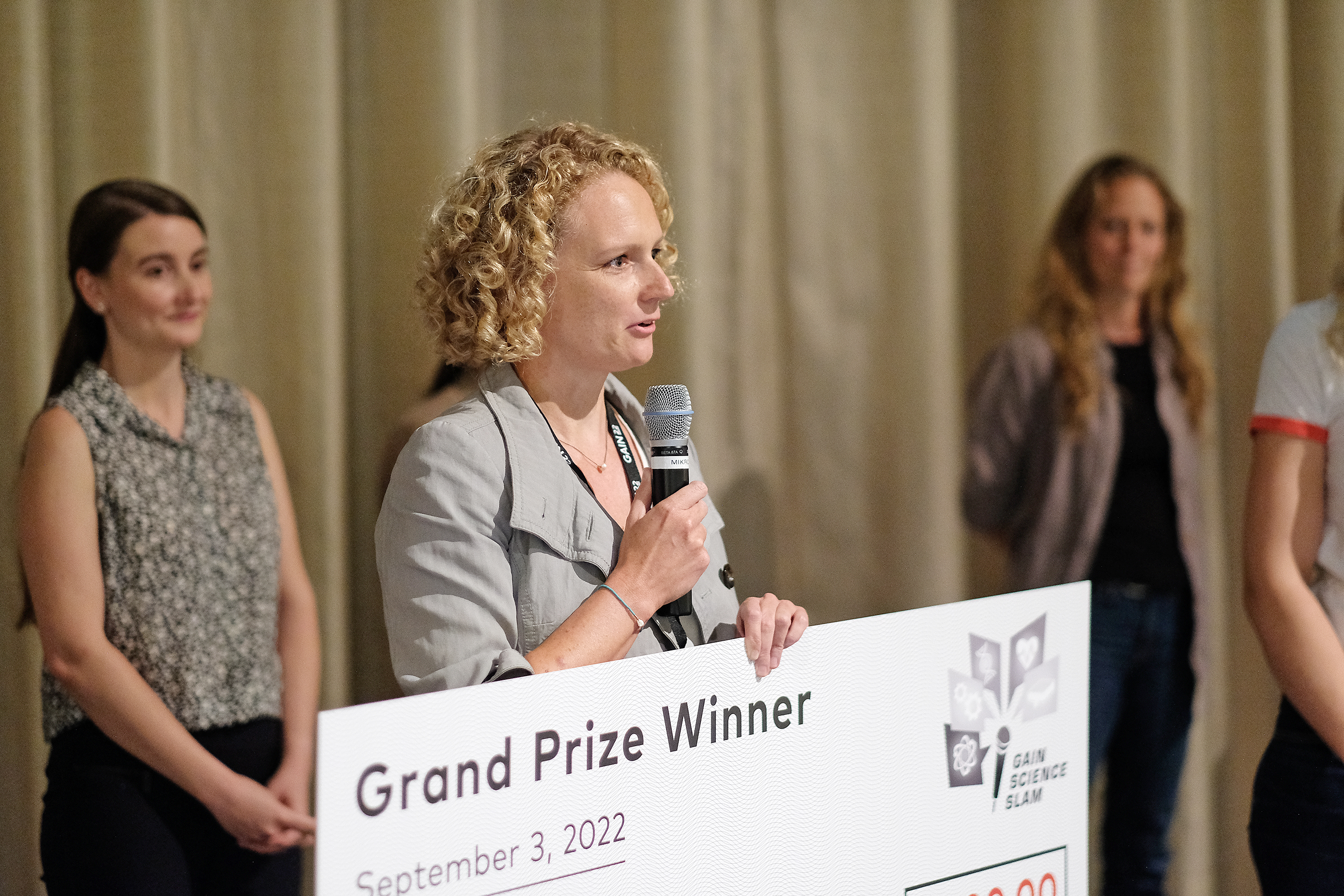GAIN taps into new target groups outside North America
(09/23/22) For the first time in its history, the network meeting was held in Europe. Some 400 participants, including 250 postdocs, benefited from the opportunity to exchange ideas and engage in discussion.
For the first time ever, the GAIN Annual Conference wasn’t held in North America – but in Bonn
© GAIN/Michael Jordan
Everything at GAIN22, held September 2-4, revolved around Germany as a research hub. The event was jointly organized by the Deutscher Akademischer Austauschdienst (DAAD, German Academic Exchange Service), the Alexander von Humboldt Foundation (AvH) and the DFG. The GAIN conference is convened annually to provide career advice to scientists and researchers in the postdoc phase, and focus on the opportunities open to them in the German science system.
Although the format of the GAIN22 program was similar to that of previous years, there was one fundamental difference: for the first time in over 20 years, GAIN22 didn’t take place in the USA, but in Bonn. It was therefore primarily aimed at scientists and researchers from Germany who are currently conducting research predominantly outside Germany in Europe, partly in Asia and Africa. The target group of German researchers working in North America could still participate, however, in a digital workshop following the attendance event.
The regular GAIN Annual Conference began on 2 September with “speed dating” for the participants, which enabled them to network and get to know each other. The DFG had ensured that its beneficiaries from the Walter Benjamin Program could participate in GAIN, so a total of almost 70 Walter Benjamin fellows also took part in this year’s conference. GAIN provided them and the other participants with information on different career paths – from professorships at higher-ed institutions or universities of applied sciences, to science management and switching into research-based business, to founding a start-up. Individual workshops were also dedicated to specific topics, such as the fields of work and career development at international organizations, and offered insights into appointment procedures and tenure-track professorships. The counseling services even covered strategies for dual career couples and families.
Over 60 institutions from the research sector also made use of the GAIN Annual Conference Talent Fair to present career opportunities in their institutions and facilities. The funded postdocs were able to use the exhibition stands to make contacts and take advantage of individual counselling opportunities. The DAAD, AvH, and DFG also had information available at their stands on programs for scientists and researchers in the early phases of their careers.
The conference was officially opened by BMBF State Secretary Kornelia Haugg, who outlined for the attending postdocs the issues currently being addressed by science and research policy in Germany. She referred to the first GAIN Annual Conference outside North America as an “experiment” that was intended to develop new target groups. This was directly followed by a podium discussion among the leaders of the host organisations – Professor Dr. Katja Becker (DFG), Professor Dr. Joybrato Mukherjee (DAAD), and Dr. Enno Aufderheide (AvH) together with Professor Dr. Michael Hoch (Rector of the University of Bonn). It was moderated by WDR journalist Jens Krepela and dealt with current crises, such as climate change, the coronavirus pandemic, Russia’s war of aggression against Ukraine, and the issues of how academia should react to such crises and what contribution it can make to their resolution.
The very next morning, it continued with another round of talks: four members of the German Bundestag Committee for Education, Research and Technology Assessment were invited to address the conference and spoke about diversity in science and the humanities and the recruitment of talent. The four participants in this discussion, Ruppert Stüwe (SPD), Lars Rohwer (CDU/CSU), Laura Kraft (B90/GREENS) and Barbara Lenk (AfD), were all in agreement about the significance of diversity in good research. They also discussed how to successfully improve the funding of innovation within research. They referred to the Federal Agency for Disruptive Innovation (SPRIND GmbH) set up in December 2019, and the German Agency for Transfer and Innovation (DATI). The audience was particularly interested in asking questions about these currently emerging institutions.
In addition to the discussion formats relating to research policy, the counseling services at the Talent Fair, and the opportunities for networking, the GAIN Annual Conference also offered entertaining scientific communication: this included scientists and researchers presenting their current research findings in a Science Slam. A total of eight researchers from different disciplines presented topics ranging from migration to medieval Japanese theatre to tiny ants. The winner of the competition was sports psychologist Vanessa Wergin from the University of Queensland in Australia, whose Slam dealt with athlete performance under pressure.
The DFG also arranged a Research Fellowship Evening for DFG beneficiaries at its headquarters on the evening of 3 September. General Secretary Dr. Heide Ahrens greeted some 80 attendees, including four members of the Bundestag. The various round table discussions led to lively conversations and thus exemplified the central concept of the GAIN Annual Conference – “networking” – in the best way possible.
The next GAIN Annual Conference is to be held in Boston, Massachusetts from 25 – 27 August 2023.






